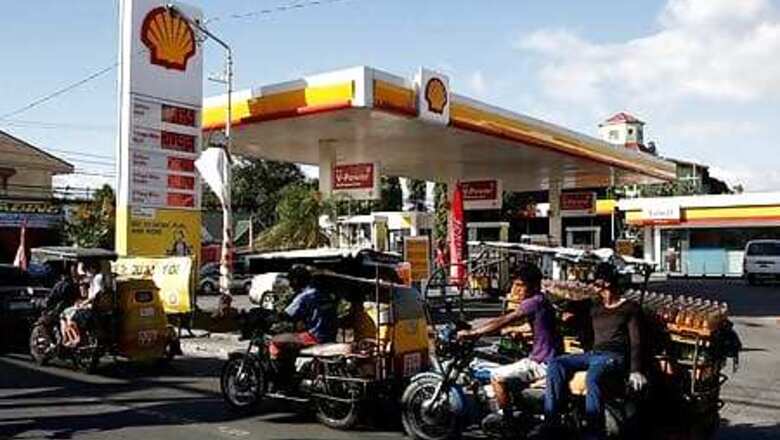
views
MANILA The Philippine unit of Royal Dutch Shell said on Thursday it will permanently shut one of the country’s two oil refineries, blaming a pandemic-led slump in margins, with other regional closures likely to follow, according to analysts.
Pilipinas Shell Petroleum Corp said its 110,000-barrel-per-day (bpd) Tabangao facility in Batangas province, which began operations in 1962, was no longer economically viable and would be turned into an import terminal.
Singapore’s complex refining margin, the bellwether in measuring profitability at Asian refineries, has been mostly negative since March prompting many refiners to cut output or temporarily shutter operations.
In the United States and Europe, refiners are permanently halting processing or weighing lasting shutdowns.
“We definitely see the possibility of more closures in Asia over the next 6-12 months,” said Mia Geng, consultant at FGE, adding that refineries in Japan, Australia and New Zealand could be likely candidates for closure.
“Given the uncertainties in demand and our subdued margin outlook, it would be challenging for those less complex and efficient refineries to continue running.”
The oil refining industry is well on track to registering more than 1 million bpd of global closures this year alone, although not all of them will come into effect in 2020, according to consultancy JBC Energy.
“The picture is fairly telling, with even the most complex refining margins down to just around 10% of their former levels, while steam cracking economics are currently at least around the 50% (of former levels) mark,” JBC said in a note.
Asia oil refining margins https://fingfx.thomsonreuters.com/gfx/ce/jznpnkrxxvl/Pasted%20image%201597285885308.png
The permanent closure of Tabangao comes after both of the Philippines’ refineries halted operations as coronavirus lockdowns pummelled oil demand.
“Due to the impact of the COVID-19 pandemic on the global, regional and local economies, and the oil supply-demand imbalance in the region, it is no longer economically viable for us to run the refinery,” Pilipinas Shell Chief Executive Officer Cesar Romero said.
The other local refinery, Petron Corp’s 180,000-bpd facility in Bataan province, has been on a scheduled turnaround since May and will restart on Sept. 1.
Energy Secretary Alfonso Cusi sought to allay concern over domestic fuel supply saying Pilipinas Shell is expected to fill its market share through imports of refined products.
Wood Mackenzie research director Sushant Gupta said the challenging environment would put pressure on weaker Asian refineries, particularly ones in mature markets, or with little or no integration with petrochemicals.
“We could see closures becoming a reality in many markets,” he said in a note.
Disclaimer: This post has been auto-published from an agency feed without any modifications to the text and has not been reviewed by an editor



















Comments
0 comment